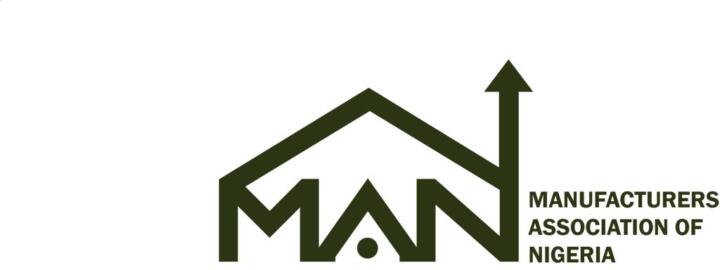The Manufacturers Association of Nigeria (MAN) has raised fresh concerns over the Federal Government’s proposed tax stamp policy, warning that the move could increase production costs, hurt local manufacturers, and ultimately shift the financial burden onto consumers. The association stressed that at a time when Nigerians are grappling with inflation, high energy costs, and dwindling purchasing power, implementing such a policy may worsen economic hardship.
The Federal Government, through its revenue agencies, has been exploring new fiscal strategies to boost tax collection and curb illicit trade, including the introduction of excise stamps across various sectors. However, manufacturers argue that the policy is poorly timed and risks undermining efforts to stabilize the country’s fragile industrial sector.

In a statement addressing the policy, MAN emphasized that while it supports initiatives aimed at strengthening tax compliance and improving government revenues, the approach must be balanced with policies that protect industries and consumers. The association explained that additional compliance costs associated with procuring and applying tax stamps would be passed on to end-users, raising the retail prices of essential goods.
According to MAN, the new requirement could trigger a chain reaction of higher consumer prices, reduced demand, and lower sales volumes for manufacturers. At a time when inflation has already strained household incomes, such outcomes could slow down growth in local industries and discourage further investment in Nigeria’s manufacturing sector.
The group also highlighted that the Nigerian economy is still struggling to recover from multiple shocks, including foreign exchange volatility, fuel price hikes, and supply chain disruptions. These challenges have already eroded competitiveness, leaving local manufacturers at a disadvantage compared to imported products. Introducing another layer of costs through tax stamps, MAN warned, could tip the balance further against domestic industries.
Stakeholders in the consumer goods sector have echoed similar sentiments, noting that the move risks reducing accessibility to basic items. With food inflation and household essentials becoming increasingly expensive, consumer advocates argue that the tax stamp policy might not only increase prices but also deepen inequality, as lower-income families would bear the brunt of the added costs.
Some industry experts argue that rather than introducing measures that add costs to manufacturers and consumers, the government should prioritize improving infrastructure, reducing multiple taxation, and stabilizing the naira. These interventions, they suggest, would create a more conducive environment for businesses to thrive while naturally broadening the tax base through increased economic activity.
MAN further pointed out that the timing of the proposal clashes with the Federal Government’s stated commitment to ease the cost of doing business and encourage industrial growth. With several fiscal and monetary reforms currently in motion—ranging from subsidy removals to new tax frameworks—the group urged authorities to avoid overlapping policies that could derail economic recovery.
The association called for deeper consultations with the private sector before rolling out such fiscal measures, warning that unilateral decisions risk stifling the manufacturing ecosystem. By engaging with industry leaders, MAN believes the government can design alternatives that balance revenue generation with industrial growth and consumer welfare.
Beyond the financial impact, concerns have also been raised about the administrative burden the tax stamp plan may impose. Manufacturers fear that compliance with new regulations will involve additional paperwork, monitoring, and bureaucratic processes that could slow down production timelines. In a competitive market, any delays could harm businesses already struggling to meet demand.
While the Federal Government maintains that the policy would help track goods, curb counterfeiting, and ensure that appropriate taxes are paid, critics argue that the benefits could be achieved through digital tax administration and stronger enforcement of existing laws rather than new levies.
The brewing standoff between government and manufacturers underscores a broader debate on Nigeria’s fiscal strategy. As the government seeks to diversify revenue away from oil dependence, it faces the challenge of designing tax measures that do not overburden industries or worsen inflationary pressures. For businesses, the key concern remains survival in an economy where costs are rising faster than consumer incomes.
Economists caution that if poorly managed, the tax stamp policy could drive more companies into the informal sector, where compliance is harder to enforce, and tax revenues are ultimately lower. A more sustainable approach, they argue, would be to expand the tax net by targeting untapped sectors and improving collection efficiency rather than burdening compliant businesses.
As discussions continue, MAN has reaffirmed its willingness to engage constructively with the government to find common ground. The association insists that manufacturers are not against taxation but are advocating for smarter policies that do not undermine industrial competitiveness or deepen consumer hardship.
The debate now lies at the intersection of fiscal necessity and economic reality. With inflation still high and households struggling to afford essentials, any policy that threatens to increase costs will face pushback. The government’s challenge will be to balance its revenue drive with measures that sustain growth, protect consumers, and support Nigeria’s broader development agenda.
In the coming weeks, industry observers expect further dialogue between policymakers and the manufacturing community. Whether the government proceeds with the tax stamp plan or adjusts its approach could set an important precedent for how fiscal policies are designed in Nigeria’s ongoing economic reform journey.
Support InfoStride News' Credible Journalism: Only credible journalism can guarantee a fair, accountable and transparent society, including democracy and government. It involves a lot of efforts and money. We need your support. Click here to Donate
